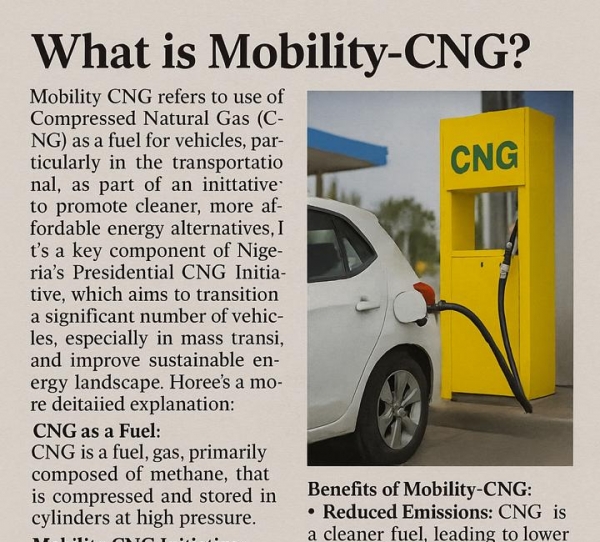Mobility CNG refers to the use of Compressed Natural Gas (CNG) as a fuel for vehicles, particularly in the transportation sector, as part of efforts to promote cleaner and more affordable energy alternatives.
The goal is to transition a significant number of vehicles, especially in mass transit, to CNG to reduce reliance on fossil fuels, lower transportation costs, and create a more sustainable and environmentally friendly energy landscape.
CNG as a Fuel:
CNG is a fuel gas, primarily composed of methane, that is compressed and stored in cylinders at high pressure. It is considered a cleaner alternative to gasoline and diesel because it produces fewer emissions.
Benefits of Mobility CNG:
• Reduced Emissions: CNG is a cleaner fuel, leading to lower greenhouse gas emissions and reduced air pollution.
• Cost Savings: CNG is often more affordable than traditional fuels, resulting in lower transportation costs for both operators and consumers.
• Energy Security: By utilizing domestic natural gas reserves, CNG adoption can reduce reliance on imported fossil fuels.
• Economic Growth: Wider CNG adoption can stimulate economic activity by creating jobs in the conversion, supply, and maintenance sectors.
Government Support:
The federal government is actively supporting the CNG transition through policies, infrastructure development, and financial incentives, including funding for vehicle conversions, gas infrastructure development, and promoting public awareness about its benefits.

